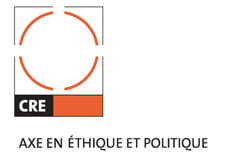The proposed panel invites reflections on some of the most pressing challenges faced by social and ecological systems in the so-called ‘Anthropocene’. More specifically, this panel sets up a conversation that explores the divergences and convergences between bodies of literatures that seldom cross-reference each other, such as environmental ethics and green political theory, critical theory, classical political thought, and anticolonial and Indigenous resurgence scholarship. While acknowledging the importance of ecologizing Western forms of social and political theorizing, the aim of this panel is to urge the need to unsettle the premises of Euro-modern normativity that remain prevalent in mainstream political theory. Among these premises we find the disconnection of ‘society’ from ‘nature’, the theoretical separation of ‘progress’ and ‘development’ from domination and colonization, and the ahistorical view of science and technology as forming part of a universal process towards the betterment of humankind. The sort of reflections we hope to give rise to will take issue with the prevailing understandings of fundamental concepts—which have largely been assumed to pertain to human animals exclusively—such as agency, intentionality, freedom, goodness, and jurisdiction. We will also address questions related to the potential limits of traditionally Western construals of ethics and politics (e.g. Allard-Tremblay, 2019).
This panel’s diagnosis is that many apprehensions of the ‘Anthropocene’ in political theory are marked by a politics of faith (Oakeshott 1996), where human agency and innovation are seen as the path to salvation from our current road to ecological ruin. In contrast, the members of this panel adopt a politics of skepticism, which is awake to the nature of our current predicament, and where pragmatic solutions are sought. One important way through which we do this is by opening the discussion to the imaginaries and practices of peoples whose lifeways are closely in tune with the Earth (e.g., Borrows 2018; Burkhart, 2019; Kimmerer 2013; Nelson and Shilling 2018; Turner 2020). This in turn entails a theoretical shift from an anthropocentric to a more constrained and grounded biocentric understanding of reality (e.g., Cooke 2020; Frost 2020; Krause 2020; Leff 2021). Finally, we will sketch out what we see as some of the conditions of possibility for nurturing sustainable and caring relationships with the Earth and all its inhabitants—human and more-than-human, in all their diversity.
We propose the following papers: John McGuire will raise an “alternate Western tradition,” identified with Herodotus, per which Nature ‘speaks’ and re-imposes nomos by way of intrusions into human spaces and through ununsual and disturbing behaviours (e.g., horses breaking from their paddocks to devour snakes that have infested the city walls of Lydia). He will also pay attention to the way Herodotus connects dynastic fates to how kings ‘respond’ to nature (e.g., Xerxes’ doomed expedition during which he orders the river at the Hellespont to be ‘whipped’ and ‘insulted’ by his soldiers after a flood destroys a bridge). Maeve Cooke’s paper will challenge the assumptions that underlie the way we think about human agency, as well as show the interconnections between these and Western conceptions of manipulation, control, and domination. In contrast to this, her paper will propose an ethical and political rethinking of agency, one that allows us to reorient our conceptions of agency, freedom, and goodness towards ecological thriving. Yann Allard-Tremblay’s paper contributes to the Anthropocene scholarship from an Indigenous and decolonial perspective. His paper draws notably on the Land Back movement and offers a critique of the Modern and Colonial conception of sovereignty, as well as of the destructive orientation to the world that it entails and he ultimately points to the need to conceptualize jurisdiction as grounded in natural contexts. Finally, Didier Zúñiga’s paper looks at the ‘encounter’ between Spanish colonists and Mesoamerican peoples in the Valley of Mexico in the early sixteenth century and contrasts the ways they conceived of and related to ‘nature’. He takes issue with the theoretical separation of ‘progress’ and ‘development’ from domination and colonization, as well as with the ahistorical view of science and technology as forming part of a universal process towards the betterment of human life.




